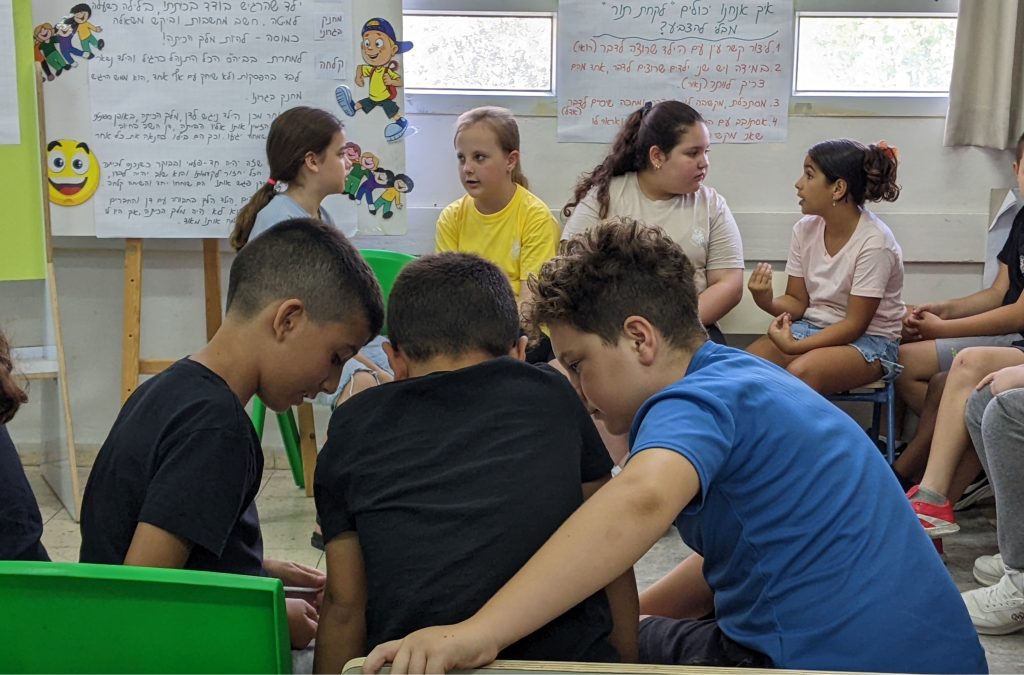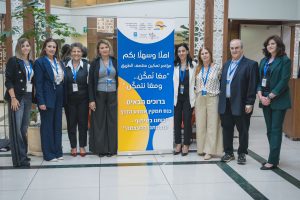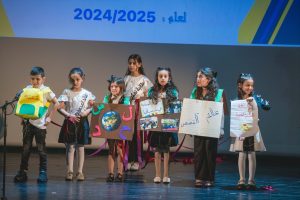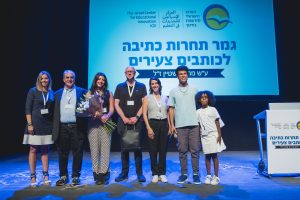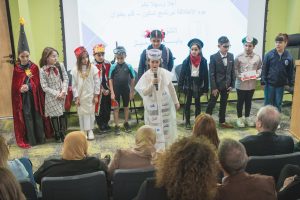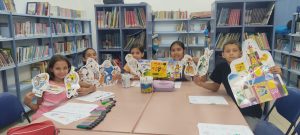These days, when democracy and civil discourse feel fragile across much of the world, it is profoundly moving and awe-inspiring to see ten- and eleven-year-olds model the kind of thoughtful, respectful dialogue many adults struggle to achieve.
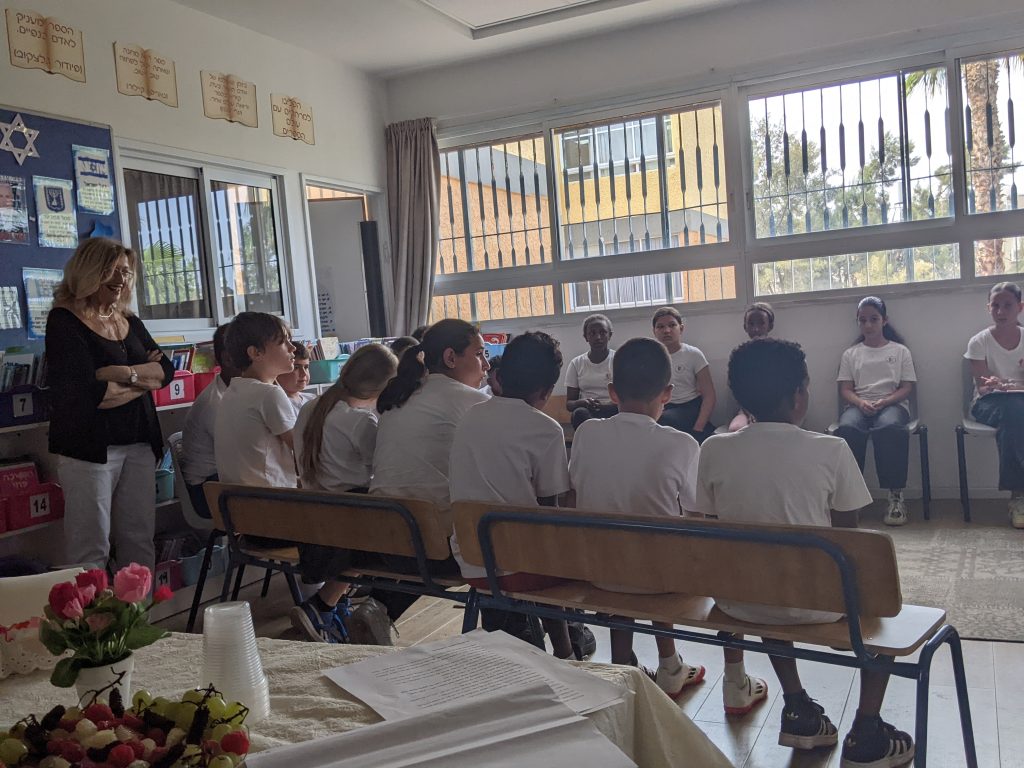
Student-led discussions have been a core part of our literacy program for years, giving students the tools to truly listen, respond with care, and build ideas together. These conversations happen with students sitting in a friendly circle, supported by vocabulary prompts, guiding questions, and class-created “rules of discourse.”
This year, we shone a spotlight on this practice with the Civil Discourse Challenge: a competition between fourteen 5th and 6th-grade classes that brought fresh attention to the dialogue component of ICEI’s literacy education model. The competitive spirit inspired teachers who hadn’t emphasized dialogue before to make it a stronger part of their daily work and motivated students with the pride of representing their peers.
Bringing New Power to a Familiar Practice
The Challenge added the structure and visibility of a shared event to the core elements of self-led conversations, listening respectfully, and responding thoughtfully.
During the Challenge, students participated in classroom discussions with the added anticipation of knowing judges would observe. They leaned forward, made eye contact, and invited quieter classmates to join in. They asked each other clarifying questions and referred back to the rules they had created together.
The Challenge built on ICEI’s literacy foundation, where discussions are a bridge between language skills and life skills. Students practiced expressing opinions in full sentences, using “I” language, and linking their comments to what others had said. They learned to agree and disagree using supporting examples and to respond in ways that kept the conversation moving forward.
Listening Deeply, Disagreeing Kindly
Watching these sessions felt like stepping into an alternate world where differences of opinion are met with curiosity, not conflict, and where every student has a place at the table.
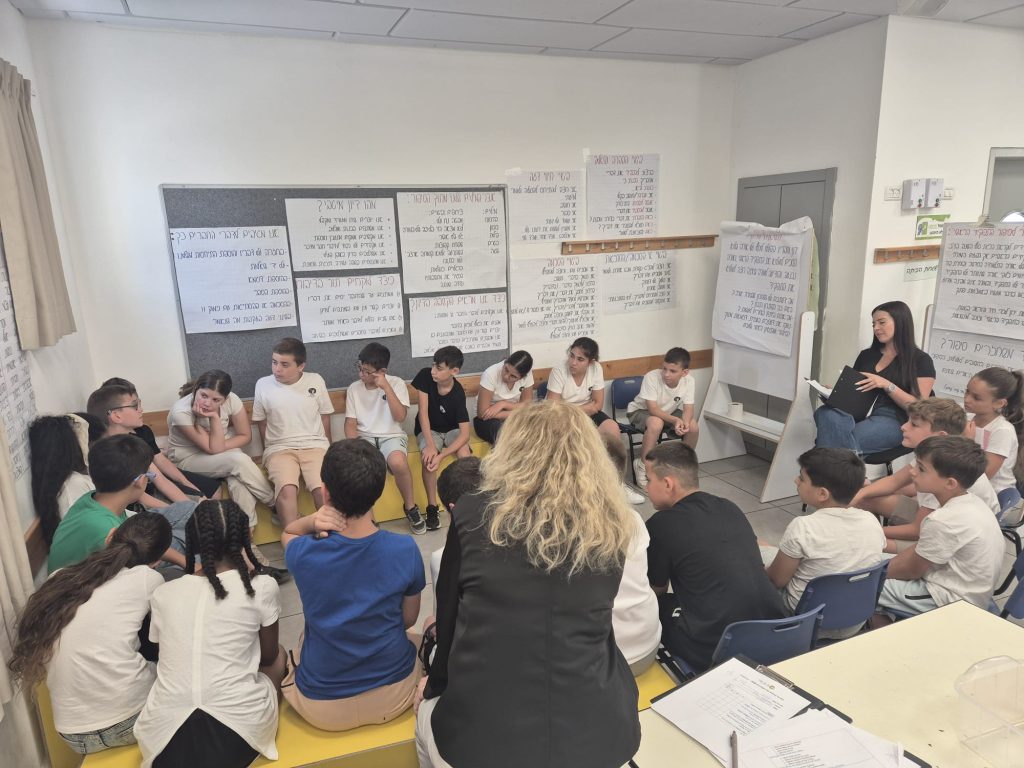
Lidor Harush was the teacher of the participating class at Shoham Elementary School in Afula. She described how a student who had moved to Israel only a year earlier and spoke very little Hebrew was invited by a classmate to share his thoughts. He did — and was heard by everyone in the circle.
She observed, “This has given kids a voice, even those who have their own challenges that sometimes make it hard for them to speak up. They feel that their peers hear them and see them, without judgment.”
Ilan Keren, the principal of Yachad Elementary School in Holon, noticed changes beyond the discussion circle. “The students didn’t have the space they wanted for recess one day. In the past, they would come and yell. Now they came and respectfully negotiated with me to find a solution.”
The students themselves have felt the transformation. “If we keep doing these discussions, we’ll get used to the language and speak better even outside of class. The other day, I was talking with my friend and she said, ‘I would like to continue your point’ and we both laughed because we realized that the language we use here has seeped into our regular vocabulary”.
Stories that Spark Connection
The questions at the heart of the Challenge came straight from the literature students read. In one class, a story about peer pressure led to a discussion about times students had been influenced by others. In another, a story about being the new student opened up heartfelt conversations about inclusion and friendship.
Shoshi Kugman, a teacher at Holon’s Yachad Elementary School, recalled, “Many students in my class have parents who are divorced or going through a divorce. I brought them books that spoke about the topic and in their self-led discussions they gave each other advice. I had tears in my eyes.”
These are the moments when literature becomes a mirror for lived experience, classmates become trusted confidants, and the power of civil discourse truly comes alive.
Teachers Growing Alongside Their Students
For teachers already comfortable with student-led discussions, the competition was a chance to refine their practice. For others, it was the nudge they needed to weave this approach more deliberately into their literacy teaching.
The support of ICEI literacy coaches remained central, with modeling, feedback, and encouragement. As Lidor, the teacher from Afula, put it, “I like my comfort zone, but this got me out of it. It did me good to see the process the kids went through.”
In some schools, the Civil Discourse Challenge inspired colleagues from other disciplines to experiment with self-led discussions in their own subjects. At Shoham Elementary, Principal Mira Tamam and ICEI Director of Education Eti Bukshpan share a larger vision. “I want to make this a schoolwide program. It should be the language of discourse throughout,” the principal said. Etiagreed,“We can change the educational culture.”
A Celebration of Respect and Connection
Every class that took part in the Civil Discourse Challenge was recognized for its effort and growth. Teachers noted that having something to work toward gave students extra motivation and energy, while the educators appreciated the support and hands-on modeling provided by ICEI staff.
In June, after being postponed due to Israel’s war with Iran, the Civil Discourse Challenge culminated in a virtual celebration. Held the day after the ceasefire, most students were able to join from their classrooms, surrounded by their classmates, as all fourteen participating classes came together online to share in the celebration.
